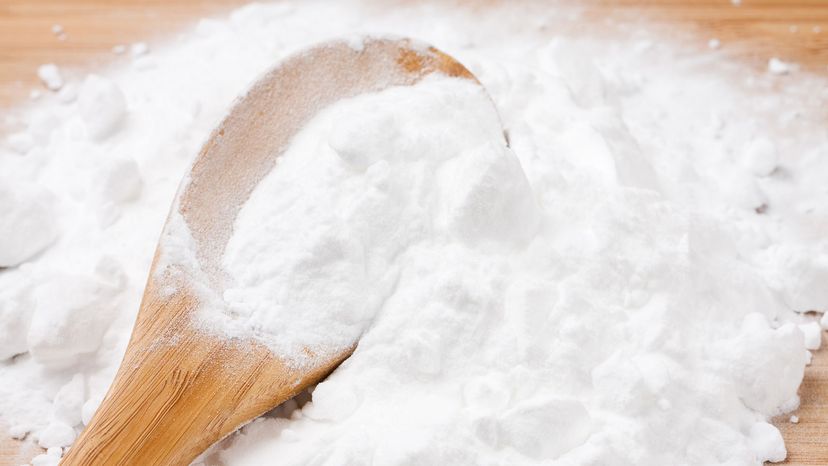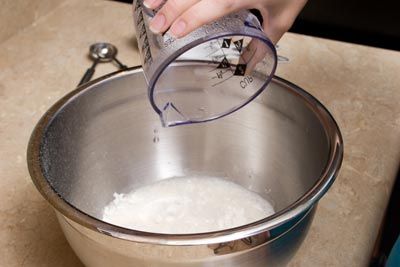
If you're in the mood to bake, the recipe you grab will almost certainly call for baking powder or baking soda. That's because both ingredients are leavening agents used to make your favorite baked goods light, fluffy and moist. But while baking powder and baking soda are similar, they're definitely not the same.
Baking soda is made from one ingredient – sodium bicarbonate. Sodium bicarbonate is a base (alkaline) that's activated when it comes in contact with an acid, such as buttermilk, yogurt, brown sugar or vinegar (usually the acid is part of your recipe). When baking soda activates, it immediately releases carbon dioxide bubbles that help your baked goods rise and become light and fluffy.
Advertisement
On the other hand, baking powder is a combination of baking soda (sodium bicarbonate) and two acids, often monocalcium phosphate and sodium aluminum sulfate. These two additional ingredients work to extend the leavening process. The monocalcium phosphate reacts to the sodium bicarbonate first, when the baking powder is stirred into a wet batter or dough; then the sodium aluminum sulfate reacts to the sodium bicarbonate when it's both moist and hot (i.e., when your baked goods go into the oven).
This two-stage activation process – which gives baking powder the tag "double-acting" – means you can delay baking the batter or dough up to 20 minutes without affecting its leavening power. Recipes using baking soda, on the other hand, require immediate baking for the best results, since baking soda reacts to an acid as soon as the two are mixed.
If you've only got baking soda on hand and need baking powder, no worries. You can substitute baking soda for baking powder with two precautions. First, you need enough acidity in the mixture to activate the baking soda. A good rule is that you need 1 cup of buttermilk or 1 teaspoon of lemon juice per 1/2 teaspoon baking soda for activation. Second, you must calculate the proper amount of baking soda to use. Baking soda is four times stronger than baking powder, so a recipe calling for 1 teaspoon of baking powder translates to 1/4 teaspoon of baking soda.
If you happen to have cream of tartar at home, you can make your own baking powder by combining it with baking soda. A 1/4 teaspoon of baking soda and 5/8 teaspoon of cream of tartar will be equal to 1 teaspoon of baking powder.
While it's relatively easy to substitute baking soda for baking powder, the opposite is not true. If a recipe calls for baking soda and all you have is baking powder, it's best not to proceed, as baking powder is a combination of several ingredients, so adding it may affect the texture or flavor of your baked item. Also baking soda is stronger than baking powder so you'd need about three or four spoons of baking powder (and a reduction in salt and other acidic ingredients in the batter) to approximate the substitute.
One more caveat when using baking soda or baking powder: Measure carefully. Too much baking soda can cause your baked goods to fall, while too much baking powder can lend a bitter taste to your goodies. And too little of either of these leavening agents can result in heavy goods without enough rise.
Advertisement

